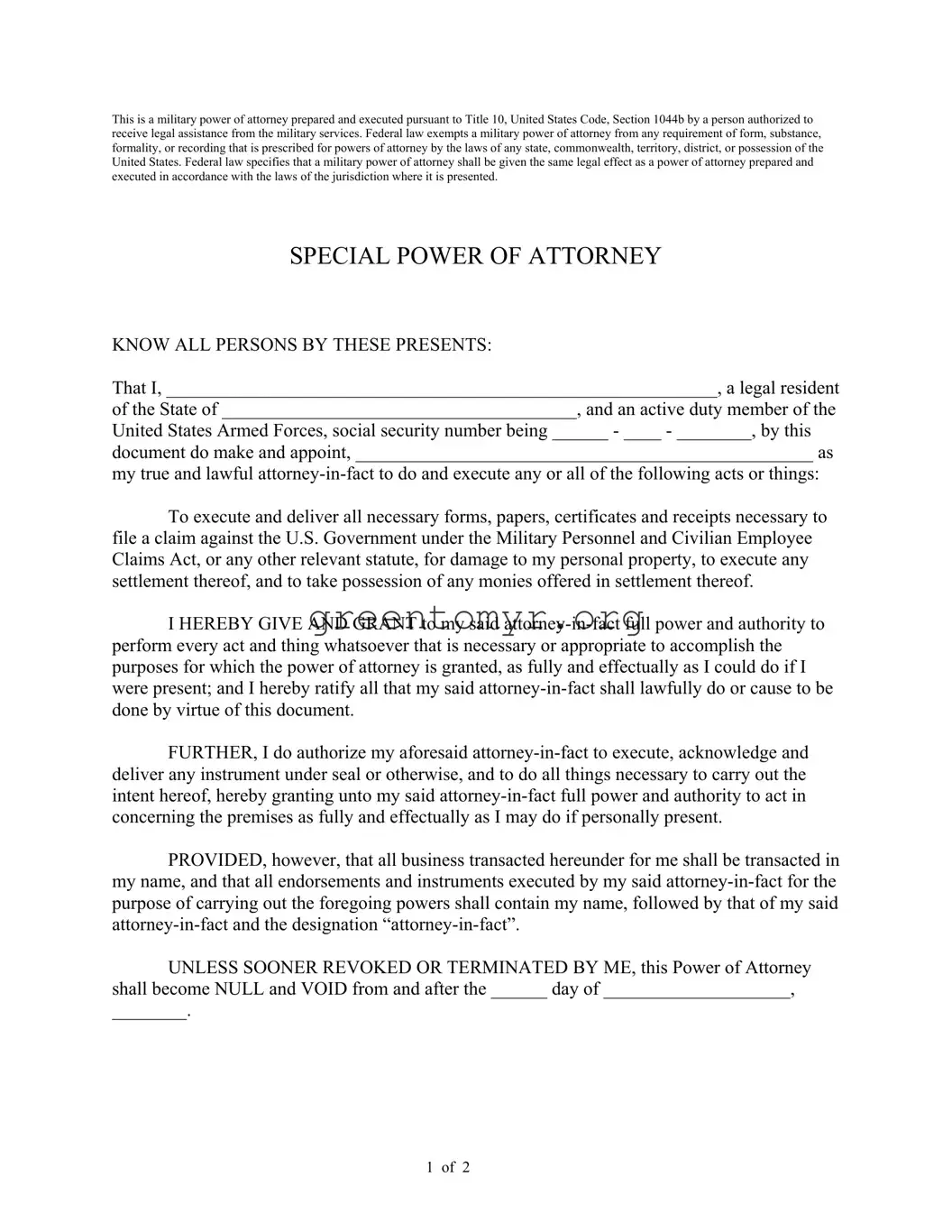This is a military power of attorney prepared and executed pursuant to Title 10, United States Code, Section 1044b by a person authorized to receive legal assistance from the military services. Federal law exempts a military power of attorney from any requirement of form, substance, formality, or recording that is prescribed for powers of attorney by the laws of any state, commonwealth, territory, district, or possession of the United States. Federal law specifies that a military power of attorney shall be given the same legal effect as a power of attorney prepared and executed in accordance with the laws of the jurisdiction where it is presented.
SPECIAL POWER OF ATTORNEY
KNOW ALL PERSONS BY THESE PRESENTS:
That I, ___________________________________________________________, a legal resident
of the State of ______________________________________, and an active duty member of the
United States Armed Forces, social security number being ______ - ____ - ________, by this
document do make and appoint, _________________________________________________ as
my true and lawful attorney-in-fact to do and execute any or all of the following acts or things:
To execute and deliver all necessary forms, papers, certificates and receipts necessary to file a claim against the U.S. Government under the Military Personnel and Civilian Employee Claims Act, or any other relevant statute, for damage to my personal property, to execute any settlement thereof, and to take possession of any monies offered in settlement thereof.
IHEREBY GIVE AND GRANT to my said attorney-in-fact full power and authority to perform every act and thing whatsoever that is necessary or appropriate to accomplish the purposes for which the power of attorney is granted, as fully and effectually as I could do if I were present; and I hereby ratify all that my said attorney-in-fact shall lawfully do or cause to be done by virtue of this document.
FURTHER, I do authorize my aforesaid attorney-in-fact to execute, acknowledge and deliver any instrument under seal or otherwise, and to do all things necessary to carry out the intent hereof, hereby granting unto my said attorney-in-fact full power and authority to act in concerning the premises as fully and effectually as I may do if personally present.
PROVIDED, however, that all business transacted hereunder for me shall be transacted in my name, and that all endorsements and instruments executed by my said attorney-in-fact for the purpose of carrying out the foregoing powers shall contain my name, followed by that of my said attorney-in-fact and the designation “attorney-in-fact”.
UNLESS SOONER REVOKED OR TERMINATED BY ME, this Power of Attorney shall become NULL and VOID from and after the ______ day of ____________________,
________.
